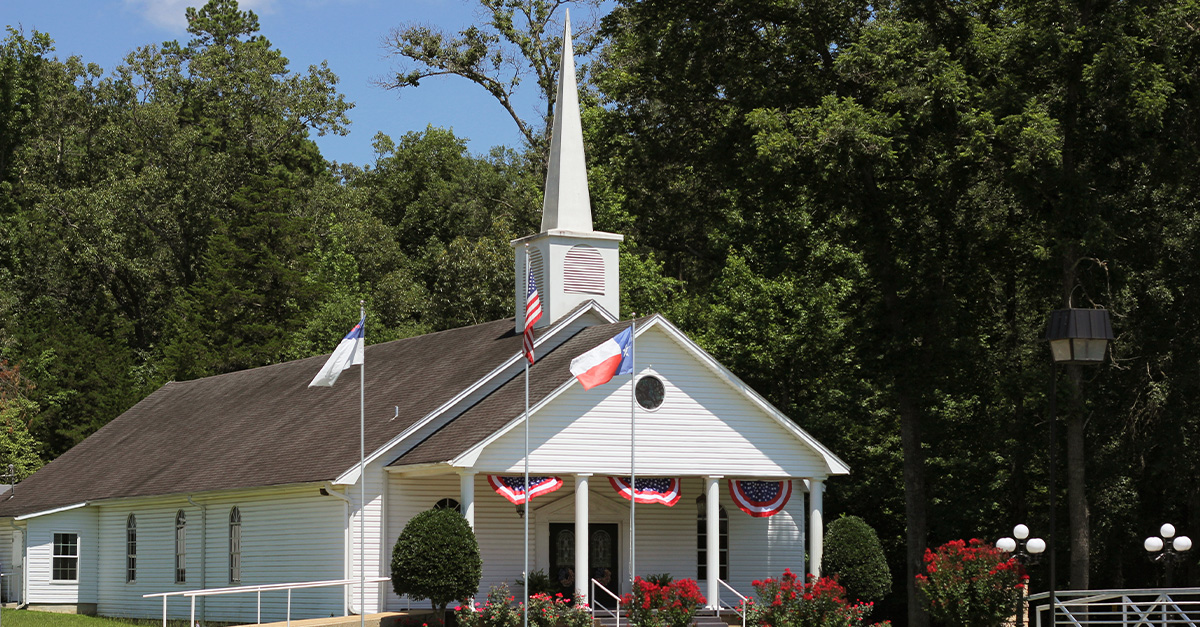


Get a free copy of Parental Rights & Education when you subscribe to our newsletter!

As all eyes were on Virginia, New Jersey, and New York City last week on Election Day, the people of Texas quietly voted for an amendment to their Constitution that will prevent the government from ever having the power to shut down churches during a pandemic or any other emergency.
Quick Facts
Proposition 3, also known as “Freedom to Act,” was proposed by Texas Rep. Scott Sanford, R. When presented to the Texas House to be placed on the ballot as a voter referendum, it passed by a vote of 108-33 and later passed the Senate by a vote of 28-2.
According to Eric McDaniel, the bipartisan support should come as no surprise. McDaniel, a government professor at the University of Texas at Austin, said, “Religion, especially in Texas, is very important to people and no politician wants to be seen as anti-religion. Going after religion in Texas is probably worse than going after Social Security.”
The goal of the amendment was to further solidify religious liberty as provided by the First Amendment. The coronavirus pandemic caused the government to shut down public businesses and houses of worship, making it illegal, in many cases, to attend church on Sunday.
Pastors had to broadcast their sermons virtually, and it became a fight to reopen churches even as cases began diminishing. Freedom to Act will prevent a major shutdown of churches in the state and bar “public health measures” that could undermine churches in the future, guaranteeing the people’s right to worship God inside of a church.
Texas’ Secretary of State John Scott said that Proposition 3 “proposes a constitutional amendment barring the state of Texas or a political subdivision from enacting, adopting, or issuing a statute, order, proclamation, decision, or rule that prohibits of limits religious services.”
He continued, “The proposed amendment would apply to religious services, including those conducted in churches, congregations, and places of worship, in the state by a religious organization established to support and serve the propagation of a sincerely held religious belief.”
While many churches and individuals celebrated Proposition 3, not everyone agreed it was a good move for Texas. Baptist Joint Commission Executive Director Amanda Tyler described the move as “damaging” for churches because she said it shows that people of faith in the state want “special treatment.”

Why was this step taken? Despite the freedom to worship guaranteed in the Constitution, secular governments increasingly view religion as just one more activity that people can choose to enjoy during their leisure time, akin to attending a concert, gambling at a casino, or spending the day at a theme park. The Supreme Court in five separate rulings over the past year affirmed the right to religious freedom, although all were ruled on under the principle of strict scrutiny, rather than a straight challenge to the First Amendment. In the case of Tandem v. Newsom, the Court wrote:
“California treats some comparable secular activities more favorably than at-home religious exercise, permitting hair salons, retail stores, personal care services, movie theaters, private suites at sporting events and concerts, and indoor restaurants to bring together more than three households at a time.”
With the vote in Texas, the government no longer has any legal or emergency power to ever shut down in-person worship at churches for any reason. This is very much in keeping with the spirit and natural law underlying Americans’ First Amendment right to freely worship without interference by the government.
Does that mean that in a future pandemic churches will simply ignore the public health guidance and put themselves, their congregants, and their communities at risk? Hardly. Pastors are called to protect their flocks from all types of danger, including a highly contagious virus, and they are perfectly capable of assessing the risks, putting in place effective mitigation strategies, providing alternatives like livestreaming and recorded sermons for those who are too at-risk or too uncomfortable to attend in-person worship, or even closing the church for a Sunday or two if they feel that it’s the right thing to do for their church.
Moreover, believers themselves have long been making the logical decision to skip worship and prayer services if they or their family members are sick with any virus, be it COVID-19, the flu or — as was the case in prior decades and centuries — even more deadly diseases like smallpox, polio, scarlet fever, tuberculosis, and diphtheria.
Despite the government’s arrogant insistence that only government officials and bureaucrats know enough or care enough to keep people safe, church leaders — and congregants — are fully capable of balancing the safety needs of the physical life with God’s commands for the spiritual life. Under the First Amendment, natural law, and now the Texas Constitution, believers have the right to gather together and worship in church as they see fit. Period.

Notifications